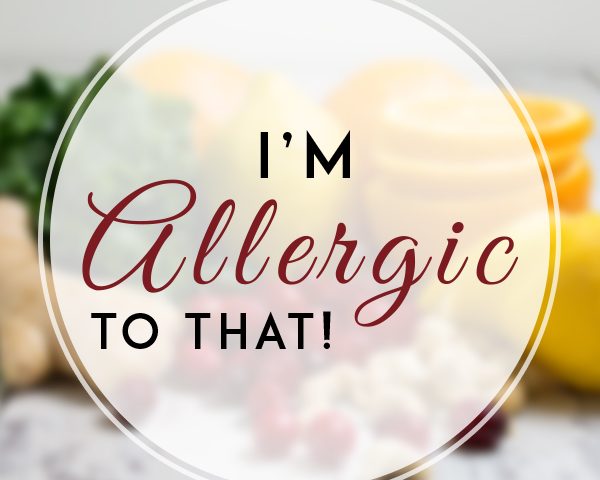
Start Fresh, Stay Fresh
June 7, 2017
Angelia Brown – Milledgeville, Georgia
June 15, 2017They’ve been around forever, but food allergies and sensitivities have come to the forefront of the world lately. Whether it’s celiac disease (an autoimmune disorder that causes the person to not be able to consume gluten), a nut allergy, a seafood allergy or something else – there’s a long list of possibilities – it’s probable that you will have at least one client who has food restrictions. Since, as a private flight attendant, you’ll be responsible for meals, snack and drinks aboard the plane, it’s important to keep that in mind.
Some allergies are as minor as the sufferer breaking out in a rash and others can cause anaphylactic shock, which can be deadly – especially when you’re thousands of feet in the air over the middle of the ocean!
One of the most positive aspects of food allergy awareness is that there are products and recipes readily available to cater to any allergy, which makes your job easier than it might have been a decade or two ago.
Stick as closely as you can to foods that specifically cater to your client’s needs, but you will likely have to purchase and serve foods that aren’t as clearly labeled as others. Often different foods are packaged in the same place and cross-contamination is common. Read labels closely – does it state that there may be peanut or gluten in it? What is the ingredient list? Familiarize yourself with uncommon ingredient names that disguise something that might be an allergen.
Also keep in mind that with many allergies and sensitivities, even a microscopic speck can cause a severe reaction, so make sure you thoroughly clean surfaces, dishes, utensils and anything else the food or drink may touch.
Your client may have a favorite dish that normally includes the allergen, which means you’ll need to learn with what you can substitute the ingredient. Someone who has lactose intolerance and can’t have milk, for instance, may be able to have soy or almond milk. That’s an easy substitute. However, in our modern age, there are few ingredients that don’t have alternatives, so learn them!
Not only is this skill and understanding important in keeping your clients healthy and happy, it’s also a selling point on your resume when looking for jobs. If you’re a pro at serving clients with allergies, you’ll be in high demand. Recipes and lists are readily available online, but it also may be a good idea to take a nutrition class or two. It isn’t just about who you know – it’s also about what you know.




